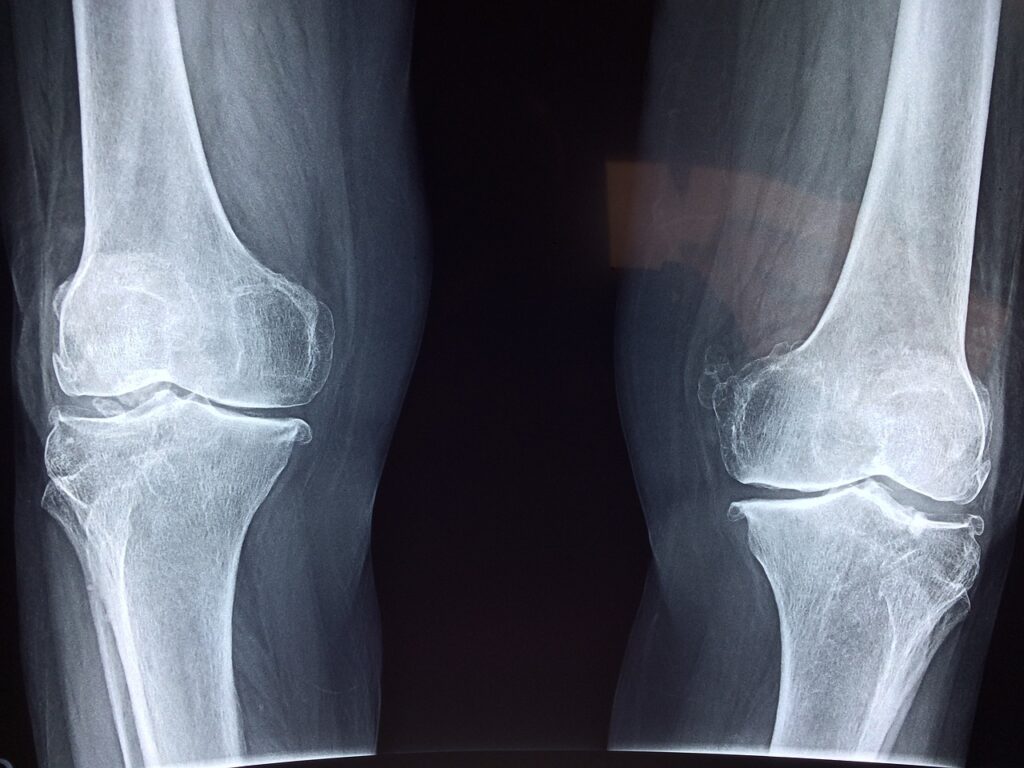The worst thing for the interim manager! ... and the way out of the crisis!

As an interim manager, flexibility and adaptability are key. But sometimes there are events that can throw even the most experienced manager off track. I want to share my story to show how you can overcome even the biggest challenges, even if they are not of a professional nature.
The worst part for the interim manager began for me in China
The worst thing for the interim manager began with an accident in China in which I suffered a tibial plateau fracture. I had broken the ball head of my lower left leg in China when I fell on a bridge. I hit my knee on a steel edge and the bone was through.
The doctors at the Chinese hospital made me “Fit for flight!” and I was flown out to Germany by ADAC. That was the best 49 euros I ever invested in my life.
The first hospital in Germany
I was operated on in the first hospital in Germany. Unfortunately, the doctors accidentally cut the peroneal nerve and also inserted the wrong plates and screws. What followed was six months in a wheelchair, physiotherapy and convalescence.
The second hospital in Germany
Six months later, he had another operation in a BG clinic. Again it was six months of wheelchair, physio and convalescence, followed by another six months of walking aids. During the entire time after the accident, I had no mandate and therefore no usual income.
It doesn't work without a team
My wife and my underinsured accident insurance – my mistake – supported me financially through this difficult time. Friends motivated and coached me to develop ideas for future mandates. Although I was fit again, it took me another 11 months to get my first mandate after the accident. Then it all came thick and fast.
Mandates non-stop
My first assignment after recovery was with an international pharmaceutical company, where I was responsible for the integration of OT into IT and the introduction of data analytics for the development of patient-related therapies based on artificial intelligence (AI).
This was followed by an assignment at a food supplement group, where I optimized the online stores, integrated them into a CRM system and introduced data analytics to optimize production processes and sales processes based on AI.
I then worked for a rehabilitation clinic group, where I drove the digitalization of patient admissions, the introduction of data analytics based on AI and the optimization of IT-based processes.
Another assignment took me to a university hospital, where I worked as interim overall IT manager. Here, I optimized the IT processes, introduced a digital patient file and used data analytics for patient-related data using AI.
I then worked for an international pharmaceutical company for three months as Interim Head of IT, where I optimized the data models and reintroduced data analytics using AI.
Finally, I received another mandate at an international pharmaceutical company, which came about through a word-of-mouth recommendation from a board member. I am working there as interim CIO and interim CTO, optimizing the IT infrastructure and processes, integrating OT and reintroducing SmartDataFactory-based data analytics including AI.
The worst was over for the interim manager.
Conclusion
Without my wife, I would never have managed the worst for the interim manager. It’s good to have friends by your side who motivate and coach you to persevere. However, the success of getting back to work depends on you. Financial resources must be sufficient for at least 12 months. Continuous information transfer to interim management agencies is essential. A broad network with the employees of interim management agencies is therefore essential.
My story shows that even the worst setbacks can be overcome. With the right support, motivation and a strong network, interim managers can always get back up and be extraordinarily successful again.
Thank you to the people who recognize themselves in this contribution!
The “TOP 100 INTERIM” award is an exclusive seal of quality awarded by the BVMID (Bundesvereinigung Mittelstand in Deutschland) in cooperation with renowned interim management agencies [source: 2]. This award is part of an innovative initiative that aims to promote the connection between quality-assured interim managers and companies, especially in light of the acute shortage of skilled workers [source: 2].